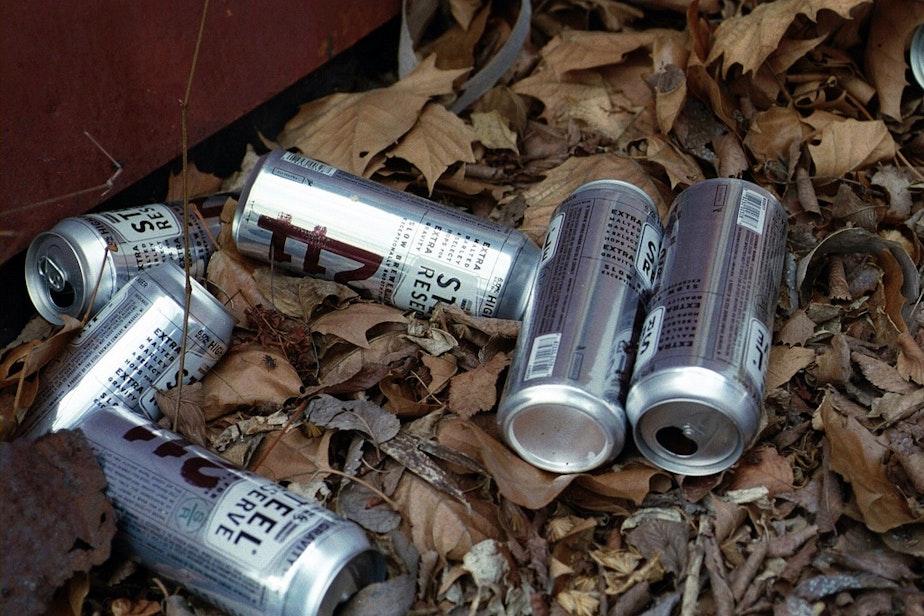To Combat Urination And Littering, Olympia Bans High-Alcohol Sales In Downtown Core

At $1.39, less than the price of a pack of gum, you can get up to four servings of alcohol at a store selling high alcohol beverages. Starting Saturday, though, that store will have to be located outside of downtown Olympia.
Washington’s capital city is creating an Alcohol Impact Area that will ban the sale of high alcohol beverages in an effort to combat issues of public urination and littering. The measure is getting mixed reviews from business owners.
“At this point, I feel like I’m losing the products that I have a right to sell as a licensee,” said Perry Park, who has owned Capitol Lake Grocery for 15 years.
The convenience store is nestled in Olympia’s downtown core and has a cooler of the soon-to-be-banned drinks. Park estimated that high alcohol beverages make up 30 to 40 percent of his total sales.
Sharon Foster, chair of the state Liquor Control Board, said drinks like Four Loko, Steel Reserve 211, and Keystone Ice aren’t like typical beer because of the high alcohol content. One bottle of Four Loko has a 12.3 percent alcohol by volume (ABV) measure. By comparison, Bud Light has a 5.0 percent ABV.
Sponsored
Microbrews, or artisanal beers, also contain a higher ABV, but Foster noted that those drinks also come with a higher price tag. “That isn’t something we’re seeing the chronic people buying,” she said.
Instead, according to the Liquor Control Board, chronic alcoholics are buying cheap, potent beer. This has led to issues with litter and public urination.
David Wassen owns a coffee shop across the street from Capitol Lake Grocery called Batdorf & Bronson. He said that panhandlers hang out on his side of the street. “If you watch it for any time,” Wassen said, “You’ll see those panhandlers walk across the street, purchase a beverage, go in the alley.”
He says this makes customers feel uncomfortable and less likely to shop downtown.
Park said the problem is societal, not an alcohol issue. “I don’t think it’s going to make a whole lot of difference as far as their population in downtown areas,” he said. “If you got a guy with a suit drinking a vodka, it's not a problem. It's because of the appearance of the people, their behavior — that’s what’s been causing these problems.”
Sponsored
Other Washington cities have tried a similar ban, including Seattle, Spokane and Tacoma. Seattle’s University District reportedly saw a 41 percent decrease in alcohol-related crimes after the ban took effect.
Olympia will review its findings next year.
Produced for the Web by Kara McDermott.
